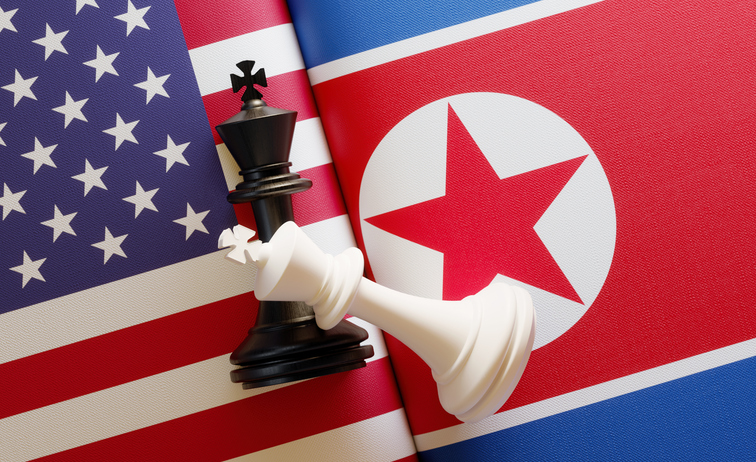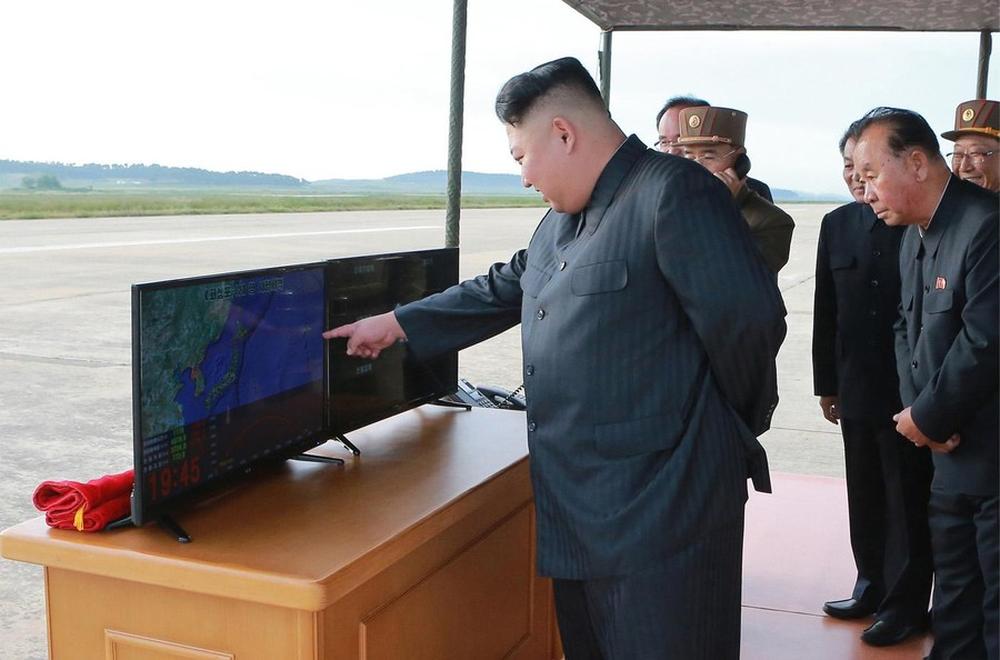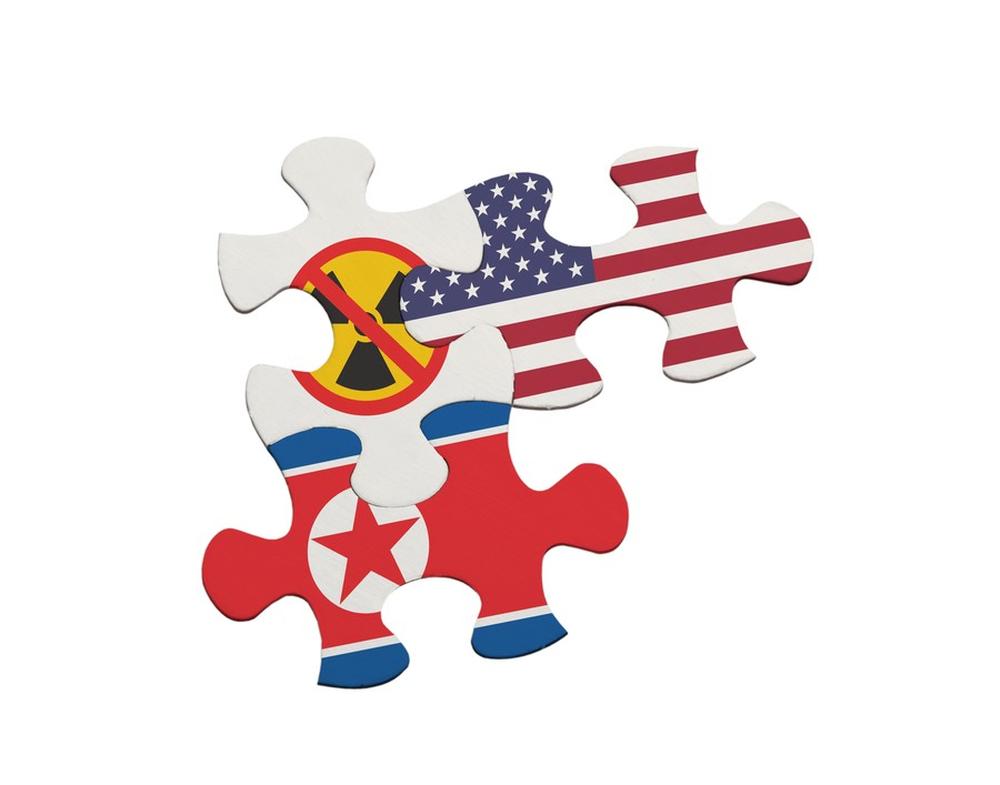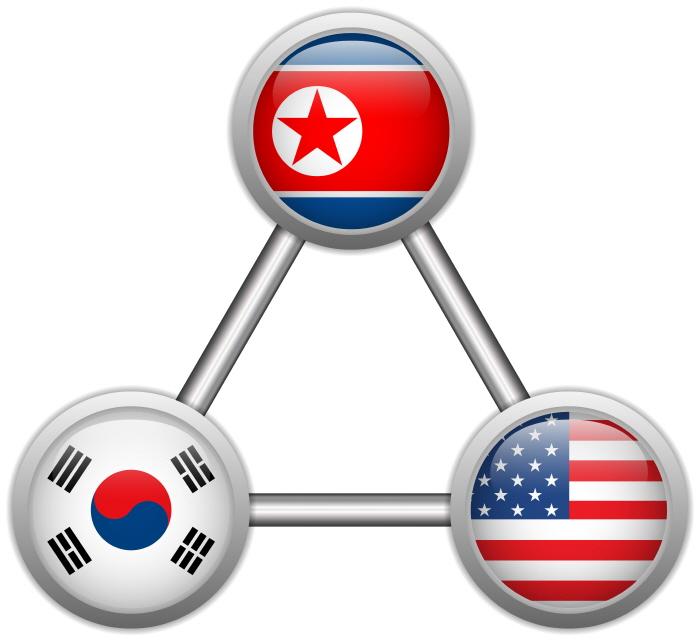- #Inter-Korean Relations
- #North Korea
- #Security & Defense
- #US Foreign Policy
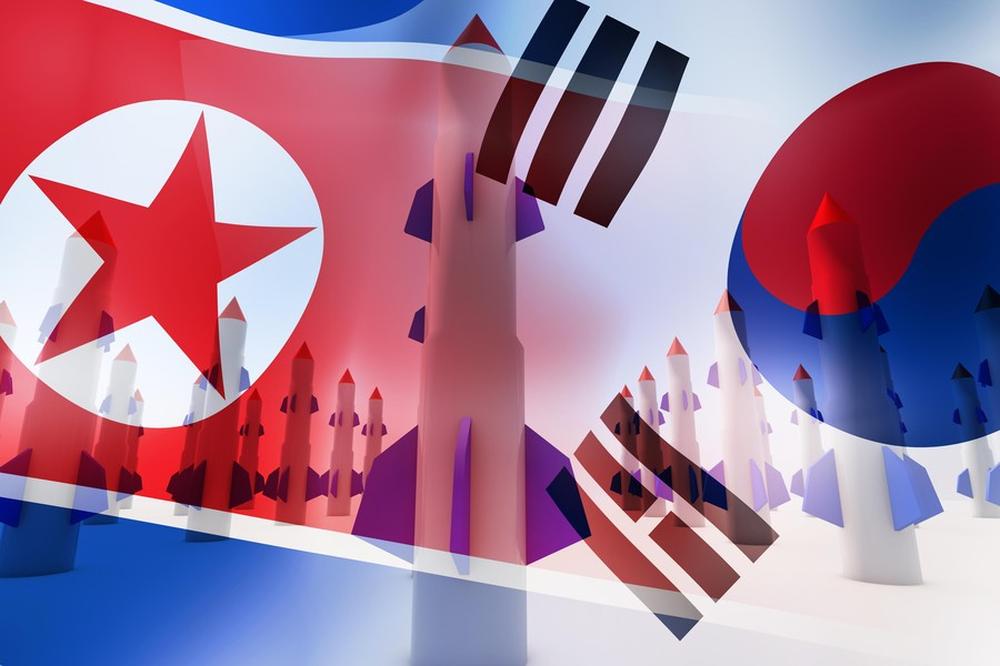
Ever since North Korea’s nuclear development program first came under increasing international scrutiny in the early 1990s, it has dominated the geopolitical landscape on the Korean Peninsula for thirty years. Despite all the possible measures taken so far, both the South Korean and American governments have failed to prevent North Korea from advancing its nuclear weapons program. Simply put, North Korea’s will to develop nuclear weapons far outmatched the efforts by the outside world to deter its nuclear development. Traditionally, North Korea’s nuclear ambition finds its raison d'etre from the hostile relations with the United States. As such, North Korea’s insistence on conditional denuclearization rests on its argument that it has no reason to possess nuclear weapons if the United States ends hostile relations, the origin of which dates back to the Korean War, and guarantees the survival of the North Korean regime.
The Korean Peninsula Peace Process is a diplomatic negotiation process, in which peace and denuclearization are exchanged for establishing a peace regime and realizing the complete denuclearization on the Korean Peninsula. The Panmunjeom Declaration for Peace, Prosperity and Unification of the Korean Peninsula on April 27, 2018 (hereinafter “The Panmunjeom Declaration”) and the Joint Statement of the U.S. and the DPRK at the Singapore Summit on June 12, 2018 (hereinafter “The Singapore Joint Agreement”) were part of an agenda-setting process that would allow for a peace regime to be established in exchange for complete denuclearization on the Korean Peninsula. The U.S.-DPRK negotiations came to a halt in February 2019 during the 2nd U.S.-DPRK Hanoi summit meeting when the two sides couldn’t agree on a roadmap to denuclearization. After the “no deal” outcome, North Korea declared that the U.S. had lost a “golden opportunity” and that it has no intention of continuing negotiations on denuclearization unless the U.S. changes its “political calculation.” Specifically, it has come to view U.S.-DPRK relations as a battle between sanctions and self-rehabilitation (Charkyok Kaengsaeng), and has called for a “frontal breakthrough” in an effort to weather the impact of international economic sanctions.
After undergoing a review of the four previous administrations’ North Korea policies, the Biden administration has adopted a “calibrated and practical approach” that differentiates itself from Trump’s grand bargain approach and Obama’s strategic patience. In response, North Korea has adopted a wait-and-see approach. One notable development is that, unlike in the past, North Korea has refrained from nuclear and ICBM testing following the inauguration of the Biden administration. During the 8th Congress of the Korean Workers’ Party held in January of this year, Pyongyang declared that it would deal with the U.S. based on the principle of “responding to power with power and goodwill with goodwill.” This stance was reiterated during the 3rd Plenary Meeting of the 8th Central Committee of the Workers' Party of Korea (WPK) in June when General Secretary of WPK Kim Jong-un stressed the need to prepare “for both dialogue and confrontation” in dealing with the United States. In essence, this was North Korea’s way of passing the ball onto the U.S.’ diplomatic court.
During the ROK-U.S. summit in May of this year, the two leaders agreed on a new approach to North Korea based on previous inter-Korean and U.S.-DPRK commitments such as the Panmunjom Declaration and Singapore Joint Agreement while coordinating policies with relevant stakeholders. By inheriting the previous administration’s agreements with North Korea, the Biden administration has increased the likelihood of resuming negotiations and deterring North Korea’s provocations. The agreements reached at Singapore comprehensively include the four pillars of the Singapore Joint Agreement (new U.S.-DPRK relations, lasting and stable peace, denuclearization, and recovering the remains of POW/MIA) and the oral agreements between President Trump and Chairman Kim Jong-un to suspend U.S.-ROK joint military exercises in exchange for North Korea’s promise to halt its nuclear and ICBM testing.
It appears that the affirmation by the Biden administration to adhere to the Singapore Agreement has led North Korea to suspend its strategic provocations, including nuclear testing, and to review the “calibrated and practical approach” laid out by the Biden administration. As part of this “dual suspension” approach, North Korea has demanded that the United States honor its promise to completely halt U.S.-ROK joint military exercises and lift economic sanctions and withdraw hostile policies against the North. Despite North Korea having experienced a serious economic downturn as a result of economic sanctions, COVID-19, and natural disasters, it has refrained from any strategic provocations that could escalate tensions or direct domestic discontent towards the United States. The reasons are as follows.
First, this can be considered a show of confidence by a nuclear state. Following a successful testing of the Hwasong-15 ICBM, North Korea declared that it has completed its nuclear program. Therefore, it appears that North Korea does not feel the need to conduct further nuclear and ICBM testing. Recently, North Korea—with its standing and status as a nuclear weapons state—declared that it will open “an era of putting our state first” and, according to Rodong Sinmun (April 2, 2021), is “taking the political lead as peacekeeper.” It is possible that North Korea has decided to refrain from provoking the United States because it firmly believes that time is on its side and that its nuclear power will only grow as the United States delays negotiations.
During the 3rd Plenary Meeting of the 8th Central Committee of the WPK in June, General Secretary Kim mentioned that North Korea, as a nuclear weapons state, will “actively create a favorable environment” and stressed the importance of “strategic standing and taking a proactive role” and “managing the stable geopolitical landscape on the Korean Peninsula.” Given his emphasis on the “stable management,” it appears unlikely that North Korea will commit to strategic provocations in the form of nuclear and/or ICBM testing in the near future. Rather, it is likely to adopt a wait-and-see approach.
Second, it is possible that the international sanctions and pressure regime, along with the impact of the COVID-19 pandemic and natural disasters, have exacerbated North Korea’s economic situation, which, in turn, may have deterred North Korea from undertaking strategic provocations. Economic difficulties could lead to a growing number of defections by government officials, which could threaten the regime. Against this backdrop, strategic provocations would only worsen the situation. For the North Korean regime, economic difficulties such as food shortages could pose a greater threat than the COVID-19 pandemic. North Korea’s economic situation is dire judging by General Secretary Kim’s statement during the 3rd Plenary Meeting of the 8th Central Committee of the WPK in June which emphasized the importance of “taking critical steps to urgently deal with the most pressing issues that the North Korean people is facing,” and the declaration of a special order to stabilize living conditions of North Koreans.
Third, North Korea has likely learned from its history with the United States that engaging in strategic provocations during the early stage of the Biden administration will force North Korea into investing a great deal of time and effort to re-establish the bilateral relationship. So far, North Korea has abandoned its traditional pattern of provoking the United States for greater diplomatic leverage especially during the early stage of the incoming U.S. presidency. Rather than escalating tensions with the outside world, it is focusing on tightening control domestically. North Korea has no option but to consider the fact that provoking the Biden administration, which is preparing for dialogue and negotiations with the North, will only exacerbate domestic opinions in the U.S., which will complicate North’s effort to develop a bilateral relationship for the remainder of President Biden’s term.
Even though the Moon Jae-in administration is nearing the end of its term, main players in a peace-for-denuclearization negotiation will be North Korea and the United States. Therefore, North Korea will have no reason to wait for the next South Korean administration. If the United States and the two Koreas fail to achieve anything from this peace-for-denuclearization negotiation, which came about as a result of the three leaders finding a common ground, it will damage the political leadership in North Korea. Its decision to restore inter-Korean communication channels and its commitment to improve inter-Korean relations on June 27 appear to be part of an effort to proactively resolve foreign relations issues based on the existing inter-Korean and U.S.-DPRK agreements.
The Biden administration has not rejected the Singapore Joint Agreement despite it being the product of President Trump and has undergone a review of the four previous administrations’ North Korea policies. It is seeking a new practical approach that differs from Obama’s strategic patience or Trump’s grand bargain approach. The Biden administration seeks a “calibrated and practical approach,” aiming for the initial reduction of North Korea’s nuclear capabilities followed by complete denuclearization. Since the new U.S. administration is reaffirming the implementation of past agreements and coming up with a new approach, it will be important for North Korea to refrain from provocations and wait for the U.S. to reveal details of its new approach.
Finally, North Korea is likely to judge that provocations will be disadvantageous in terms of leveraging the U.S.-China strategic competition for its survival. Considering the prolonged nature of U.S.-China competition, it will be crucial for North Korea to maintain friendly relations with its traditional ally, China. Provocations will only hinder China’s commitment to supporting North Korea.
As an expert in areas of unification, North Korea, and inter-Korean relations, President Yu-Hwan Koh is currently Chair of the Planning and Coordination Committee at the National Unification Advisory Council (2017~) and the Korean Peninsula Sub-committee at Policy Advisory Committee of the Ministry of Foreign Affairs (2018~). Previously, he served as professor at Dongguk University's Department of North Korean Studies (1994-2020), Director of the Institute for North Korean Studies at Dongguk University (2009-2020), visiting scholar at Stanford University's Walter H. Shorenstein Asia-Pacific Research Center (2010-2011), President of the Korean Association of North Korean Studies (2012), Chair of the Peace and Prosperity Sub-committee of Presidential Commission on Policy Planning (2017-2019), member of the experts advisory group for the inter-Korean summit (2018), as well as chair of the Policy Advisory Committee, Office of National Security, and Office of the President (2017~2020). Some of President Koh's major publications include “Peace on the Road to Unification (2019)” (in Korean), “70 Years of Division Viewed through the Lens of Inter-Korean Military Conflicts (2018)” (in Korean), “Actor-Network and Performativity of Divided Korea (2015)” (in Korean), “New Paradigm of North Korean Studies (2015)” (in Korean), and “Troubled Transition: North Korea’s Politics, Economy, and External Relations (2013)” (in English).
